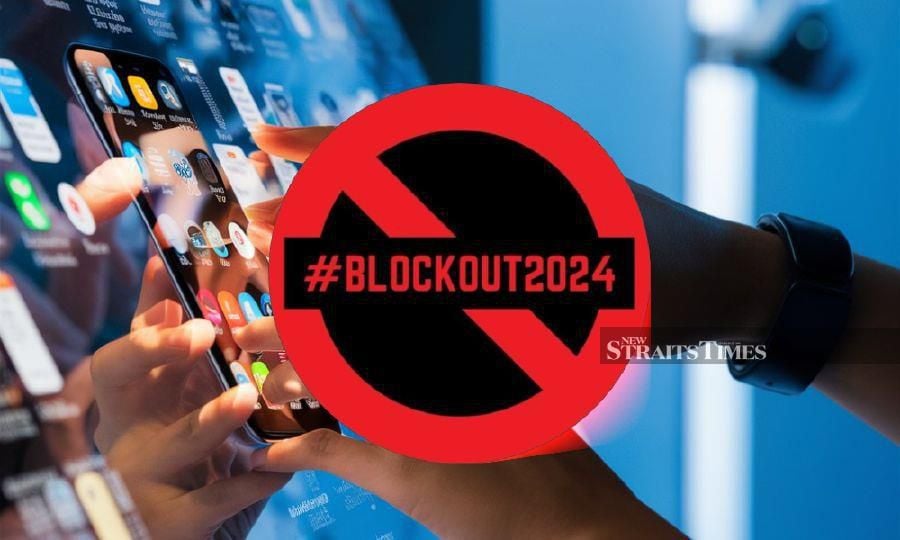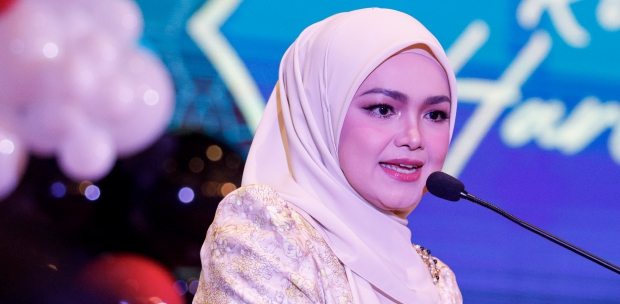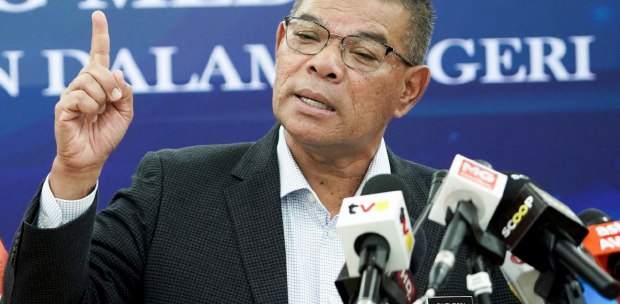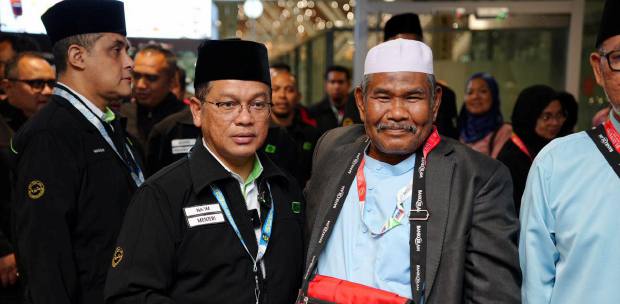KUALA LUMPUR: The Blockout 2024 campaign, aimed at boycotting celebrities for their perceived insensitivity and lack of concern regarding the Zionist regime's oppression of Palestine, deserves commendation.
However, the campaign, initiated by TikTok star ladyfromtheoutside, has veered off course with elements of threats and cyberbullying against local celebrities.
According to a special report aired on Buletin Utama on TV3 last night, the Blockout 2024 campaign, which advocates boycotting artists who allegedly do not show solidarity with Gaza, is effective.
This is evident from the drop or disappearance in views, likes, and comments on the social media and streaming platforms of the affected celebrities.
Nevertheless, the aggressive actions of some netizens have caused concern among the celebrities involved.
Not only were there insults, but some netizens also issued threats.
Naim Daniel, the singer of the song "Mainan," was among the victims, receiving threatening comments directed at his parents because of his criticism of the excessive nature of the celebrity boycott campaign.
Following this, the former Famili Duo reality show participant filed a police report, resulting in the arrest of an individual.
The special report also quoted the advice of renowned singer Datuk Seri Siti Nurhaliza, who addressed supporters of the Blockout 2024 movement, urging them to maintain decorum and avoid leaving threatening or insulting comments on celebrities' social media.
"Whatever happens, we must be courteous. That is why I emphasise that any criticism should be done respectfully. That is what Islam teaches.
"Be angry if you must, but ensure it does not embarrass or shame anyone," said Siti.
In a related development, Minister in the Prime Minister's Department (Religious Affairs) Datuk Mohd Na'im Mokhtar, outlined three fundamental principles—truth, knowledge, and morality—that should guide any boycott of artists.
"Any action taken, including solidarity campaigns, must be based on truth, knowledge, and morality.
"The Religious Affairs Department urges everyone not to take extreme measures against any party," he said.
Legal practitioner Mahmud Jumaat emphasised that the right to boycott must have limits and be free from coercion.
"Essentially, boycotting is an individual right to freedom of expression. Boycotting is not wrong.
"Legally, there are no issues, but the limits are that it should not involve losses or prejudice against parties with differing views.
"Because different methods might be used to show support and solidarity with our brothers in Palestine," he said.
Associate Professor Datuk Dr. Mohd Izhar Ariff Mohd Kashim, deputy dean of Industry Networking at the Faculty of Islamic Studies from Universiti Kebangsaan Malaysia (UKM), expressed similar views, stating that intentions matter in every action.
"Every individual, company, and job is different. Each has its considerations, but what Islam emphasises is the heart.
"The Prophet also said that everything goes back to intention," he said.
Meanwhile, TV3 broadcast journalist Fahmi Tajuddin, who prepared the special report on the Blockout 2024 campaign, said it aimed to educate the public not to act excessively and to investigate before boycotting an artist.
"In Malaysia, this is similar to international campaigns, where artists who do not take a stand on Gaza are blocked.
"However, there are also elements of cyberbullying, such as insults or derogatory remarks directed at the artists.
"So, what we emphasise in tonight's special report is how to boycott, while following the law, knowledge, and good morality. Boycotting is allowed, but there is a proper way to do it," he said.
Fahmi added that his team does not deny the Blockout 2024 movement but emphasises proper ways to show support for Palestine.
"Some people who join the Blockout 2024 campaign do not understand its connotation and content. When they see this trend gaining momentum, they follow it blindly, which we do not want.
"Because when an artist's name is mentioned, it can also affect others, such as television stations. So, people say there are consequences behind boycotting activities.
"For example, when I interviewed an expert, he said his good friend contributed to Palestine but was included in the list of boycotted artists.
"So, this is subjective because it is not feasible to show every donation.
"Here, we want to educate the public that boycotting is not a problem since the law does not prohibit it, but do it correctly and, if possible, investigate first.
"Do not make inappropriate comments like what happened to Naim Daniel," he said.





